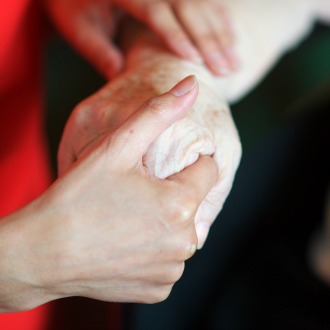
Dr Kate Barusya: Gain consent and make an assessment
When a disclosure of abuse has been made – even if it’s not involving your patient – in the interest of the public, you have a duty of care and their safety and wellbeing becomes your responsibility.
The response depends on the age and mental capacity of the abused, and if it is an adult as in this case, their consent is needed for any actions or decisions taken.
The fact that the abused person does not want you to leave the home suggests how vulnerable and fearful they are and the gravity of the abuse.
Assess the situation and gather information to ascertain the nature and seriousness of the concerns, decide whether emergency services are needed and collect any evidence. Remain calm and objective, listen carefully and establish the person’s views and wishes. Empower them to make the right decision to protect themselves and to involve appropriate support to prevent further harm.
Inform the patient of the requirement to share the information. Report the incident using the practice’s safeguarding procedures and ensure a written report is made of what was told, seen and any actions that were taken.
Dr Kate Barusya is a GP in South Essex. At her practice she is the named GP for safeguarding children

Dr Fiona Cornish: Alert colleagues to your concerns
You might not be best pleased to hear this suggestion of abuse, when you have called in to say hello to the patient just before your afternoon surgery starts.
You may be tempted to rush out, making excuses that you will be late for surgery. But somewhere in the back of your mind, you’ll remember that online course on the safeguarding of vulnerable adults and the need to report the abuse.
The first thing to do is to acknowledge the abused person’s concerns. Ask to see evidence of physical harm, such as bruising, restraint marks or poor hygiene indicating neglect. A change in behaviour – such as becoming frightened and anxious – can be a tell-tale sign.
Explain that you cannot stay, but that you will go back to the surgery and discuss the situation with your colleagues, both GPs and district nurses. Let the abused person know that there is a social worker specifically designated to protect them, the adult safeguarding co-ordinator, and that you can contact them if necessary.
If the carer is employed by an agency, you might ring the agency manager and raise concerns. It is probably wise to collect collateral information from relatives and health staff involved before any formal report is lodged about the carer.
The elderly most at risk are the socially isolated and those with memory problems. Just remember that, as the GP, you don’t need to take all the responsibility yourself. On the contrary, your main job is to share the information with others so that vulnerable patients will receive the protection and support they need and deserve.
Dr Fiona Cornish is a GP in Cambridge and president of the Medical Women’s Federation
Professor Steve Iliffe: Check for alternative explanations

Either the care recipient is at risk of harm or the call for help is symptomatic of something else. You have to work out which is more likely.
Risk of harm would be suggested by new injuries that are difficult to explain, a previous history of domestic conflict, the carer having a history of violence or substance misuse, or the vulnerable patient being known to have dementia with behavioural and psychological symptoms, such as repetitive behaviours and/or aggression, but knowing who their caregiver is.
But if the vulnerable patient has known dementia, recent or current paranoid ideas such as people stealing from them, other possible psychotic features such as hallucinations, or possible misinterpretation such as if the carer reports the patient’s agitation worsening during bathing or personal care, then that would suggest there may be something else going on. Other signs include the patient no longer being able to name their caregiver or state their relationship, evidence of delirium or the carer being distressed at the patient’s behaviour. Note that there might be factors present that argue for opposing scenarios.
If you think the case is sufficiently serious, you could call for police help. Alternatively, you could review it in a few days and discuss the case with colleagues who know the care recipient and carer. Also talk to the GP lead for safeguarding of vulnerable adults.
Whatever the immediate and subsequent decisions, they should be documented in detail.
Professor Steve Iliffe is a professor of primary care for older people at University College London and a GP in Kilburn, north-west London

















